Submitted by WA Contents
Snøhetta mimics nature under giant tree-like columns for the new Beijing City Library
China Architecture News - Feb 27, 2024 - 07:24 5147 views
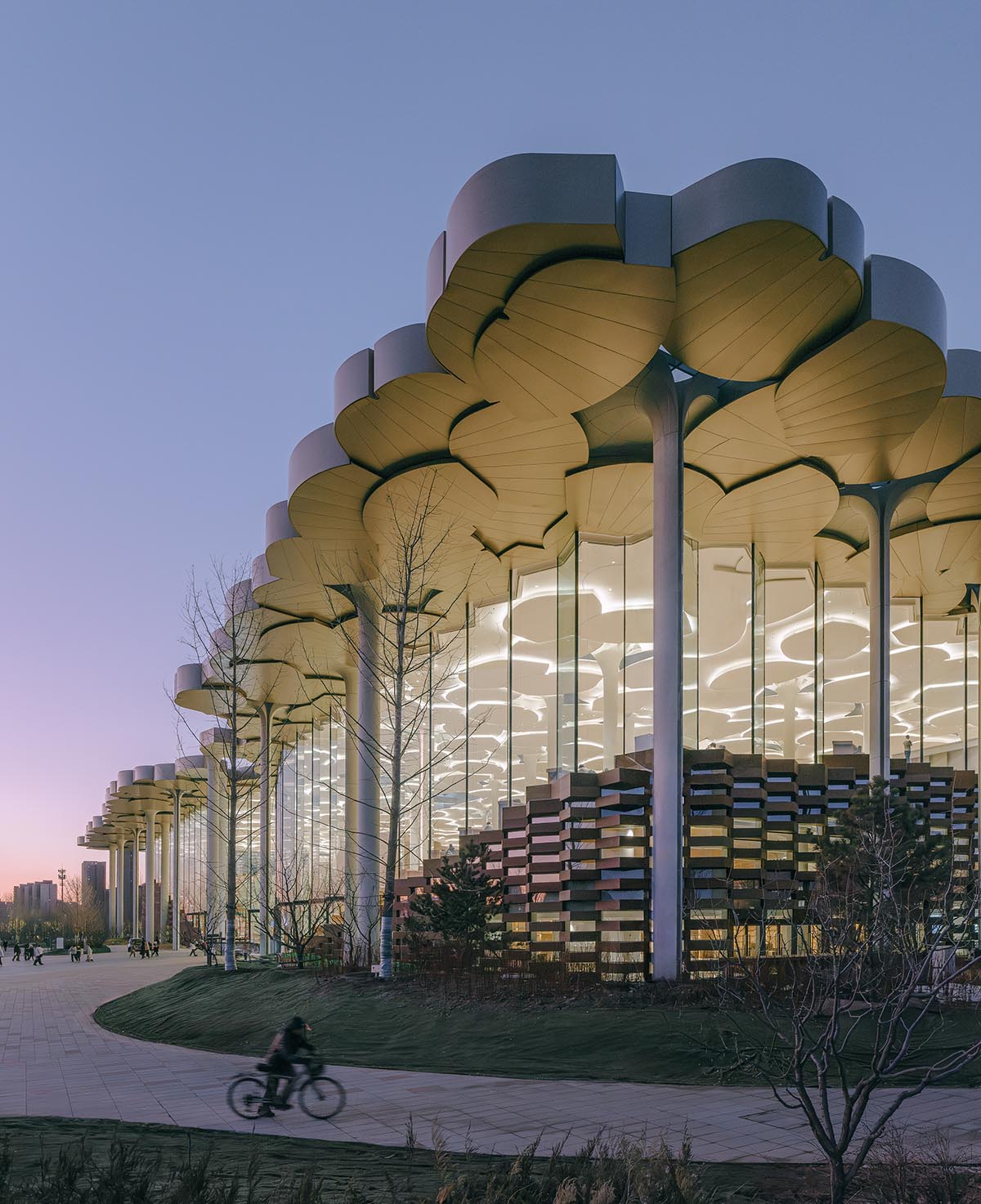
Norwegian transdisciplinary practice Snøhetta has completed Beijing City Library in China, with a giant canopy supported by ginkgo trees and wraped by a fully glazing façade.
Named Beijing City Library, the columns of the 75,000-square-metre library reference to ginkgo leaves—known as a 290-million-year-old tree species native to China.
Snøhetta brings a fresh interpretation into a traditional library typology and aimes to "reinstate the library’s relevance in the 21st century", with this approach, the firm sets out to offer a new vision for how it looks, works, and serves the community.
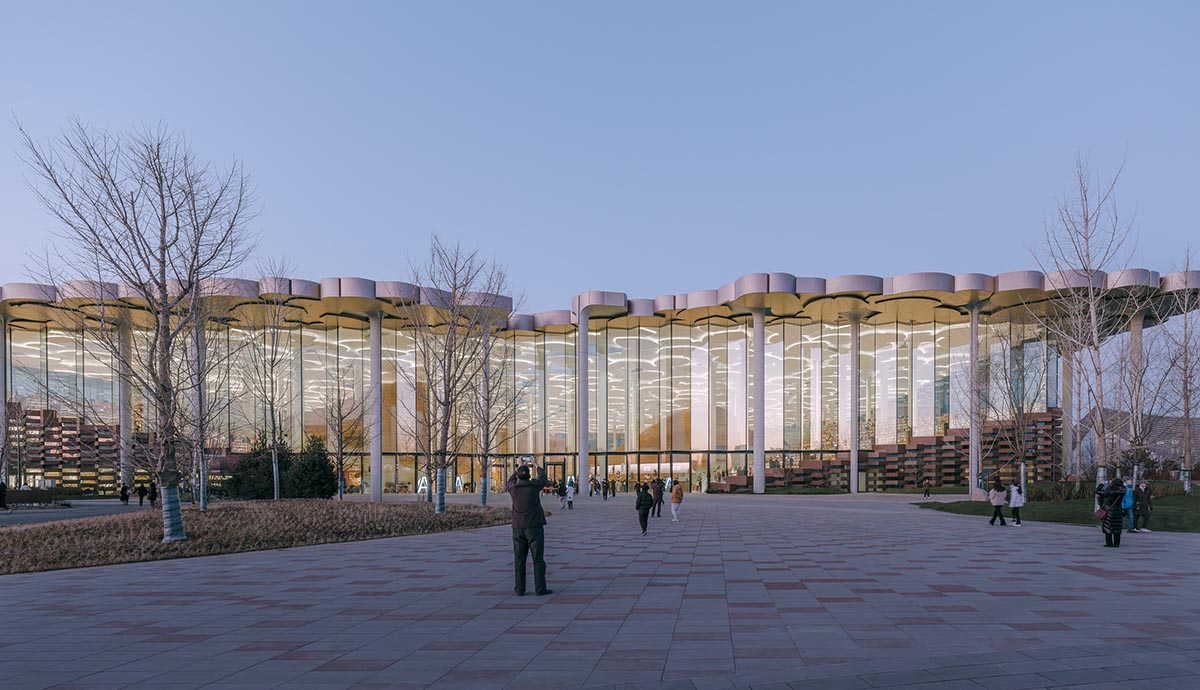
The building is located in Tongzhou District, a designated sub-center of Beijing that is often considered the eastern gateway of the capital.
The Beijing City Library is one of three new major cultural buildings in Tongzhou, and the library further establishes the area as both a vibrant district in itself and an extension of Beijing's urban fabric.
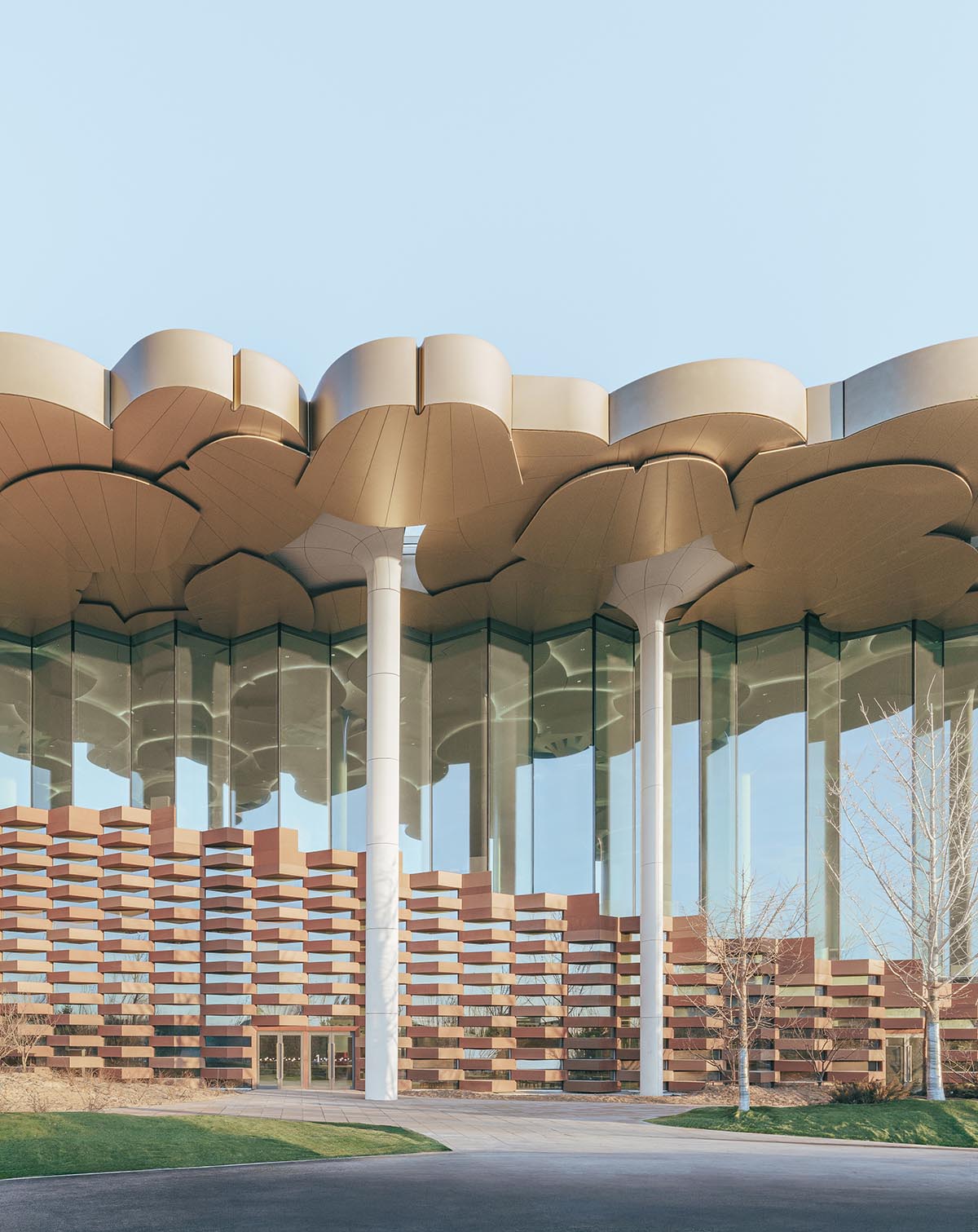
The Beijing City Library was first revealed in 2018 through an international competition and the project was completed with local partner ECADI. In addition, the library was listed in WAC's 12 Hotly-Anticipated Projects Set To Be Opened In 2024.
Snøhetta said that "The Beijing City Library draws focus on the physicality of a book as an object and the conscious exercise of turning the pages to take in the written word as the primary experience amidst the picturesque setting of hills, trees, and the Tonghui river."
"It is the love people have for books that has made libraries survive the digital age and hold new potential to give back more to the city and its public," said Kjetil Trædal Thorsen, Co-Founder and Partner at Snøhetta.
"It is up to us to reinterpret the relationship between body, mind, and the surroundings to rekindle the joy of reading away from the screen. Libraries are here to stay," Thorsen added.
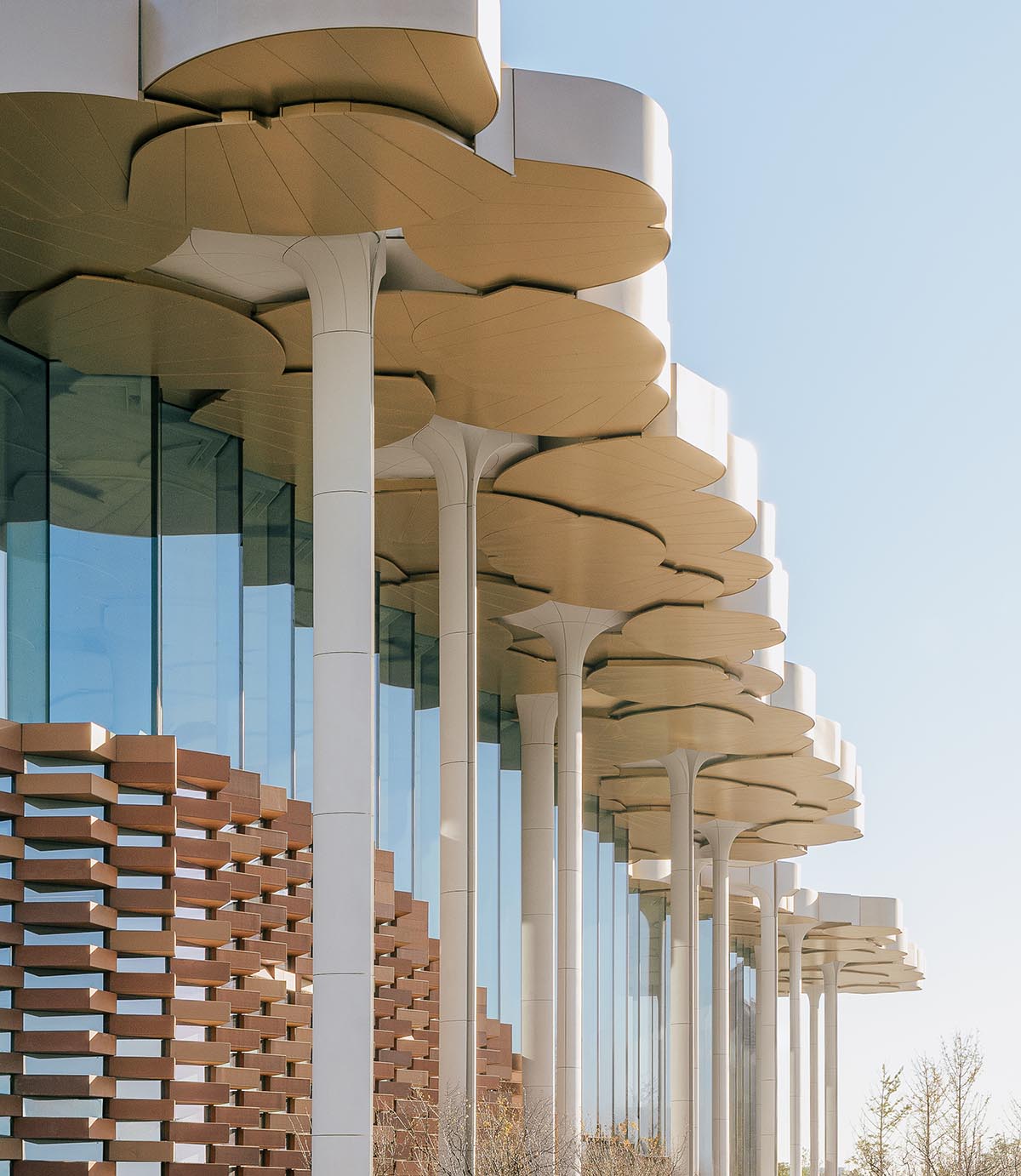
Aiming to redefine the library’s role as an important pillar of public and intellectual life, according to the firm, the new library "has become more than a mere repository of books."
It's like "a center for learning, culture, and community."
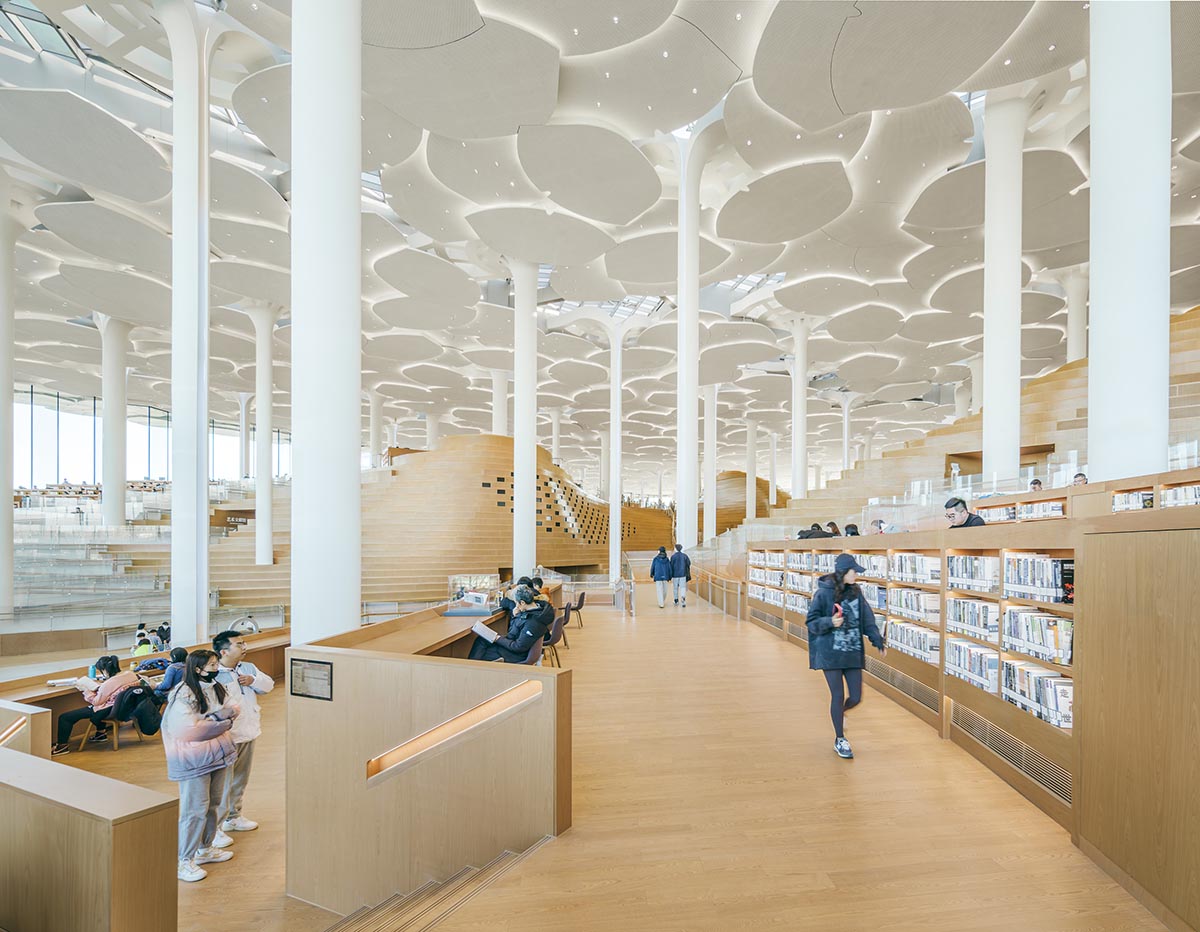
The studio draws inspiration from "the historical origins of libraries finding innovative responses to the needs of their time and place." For this purpose, the library makes the open exchange of ideas and human dialogue its core purpose.
Throughout the building, it offers dedicated spaces for exhibitions, performances, conferences, and the restoration of ancient books.
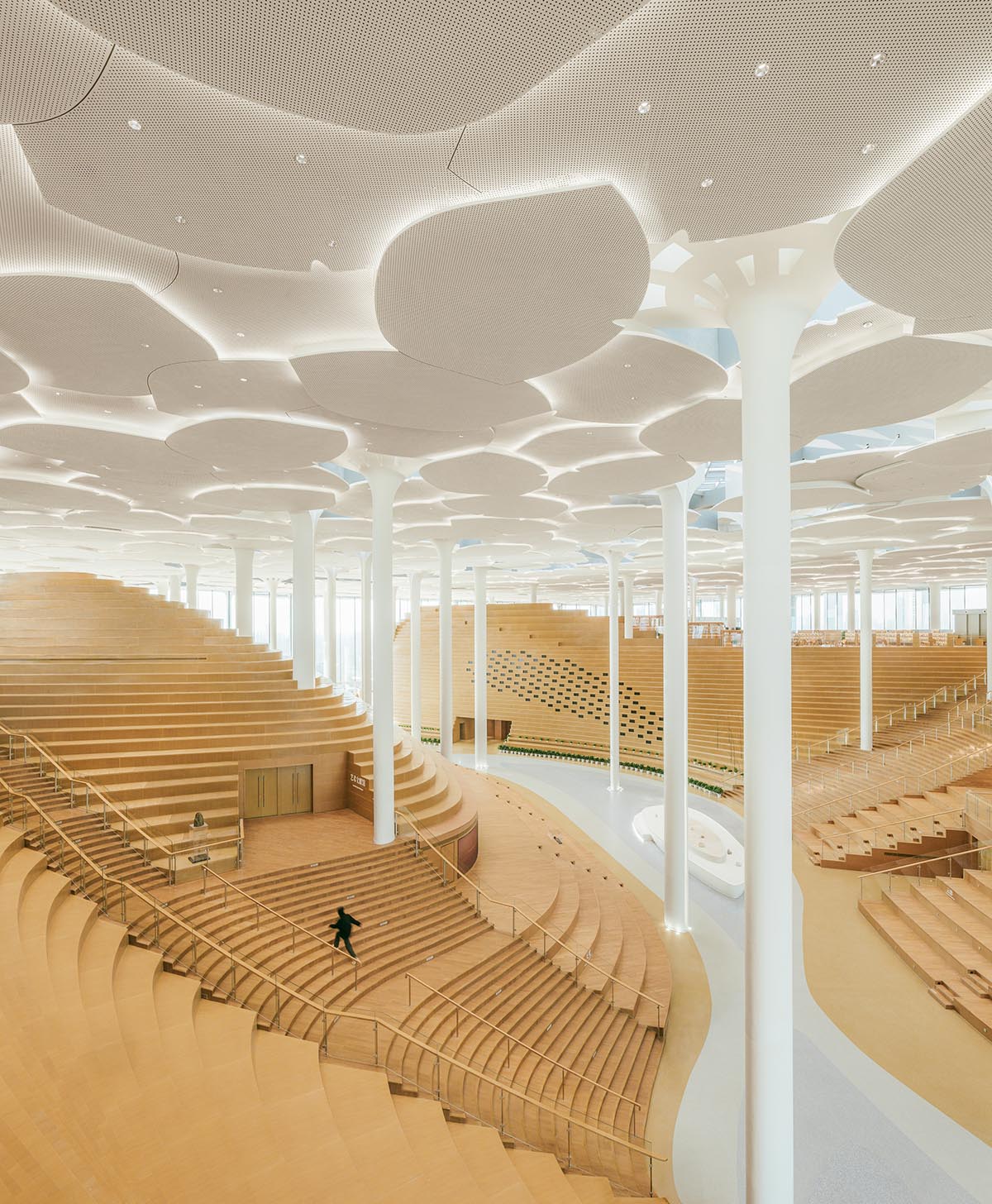
The firm carves the interior of the building like a nature cave and shapes the reading, gathering and rest areas accordingly.
Nature is emphasized with a glass-lined façade to bring the nature into the reading space and lends transparency to the enriched interior environment when viewed from outside.
The studio creates nearly 16-meter-tall welcoming forum at the heart of the library in which its form is a sweeping and rising as stepped terraces along smooth, rhythmic curves.
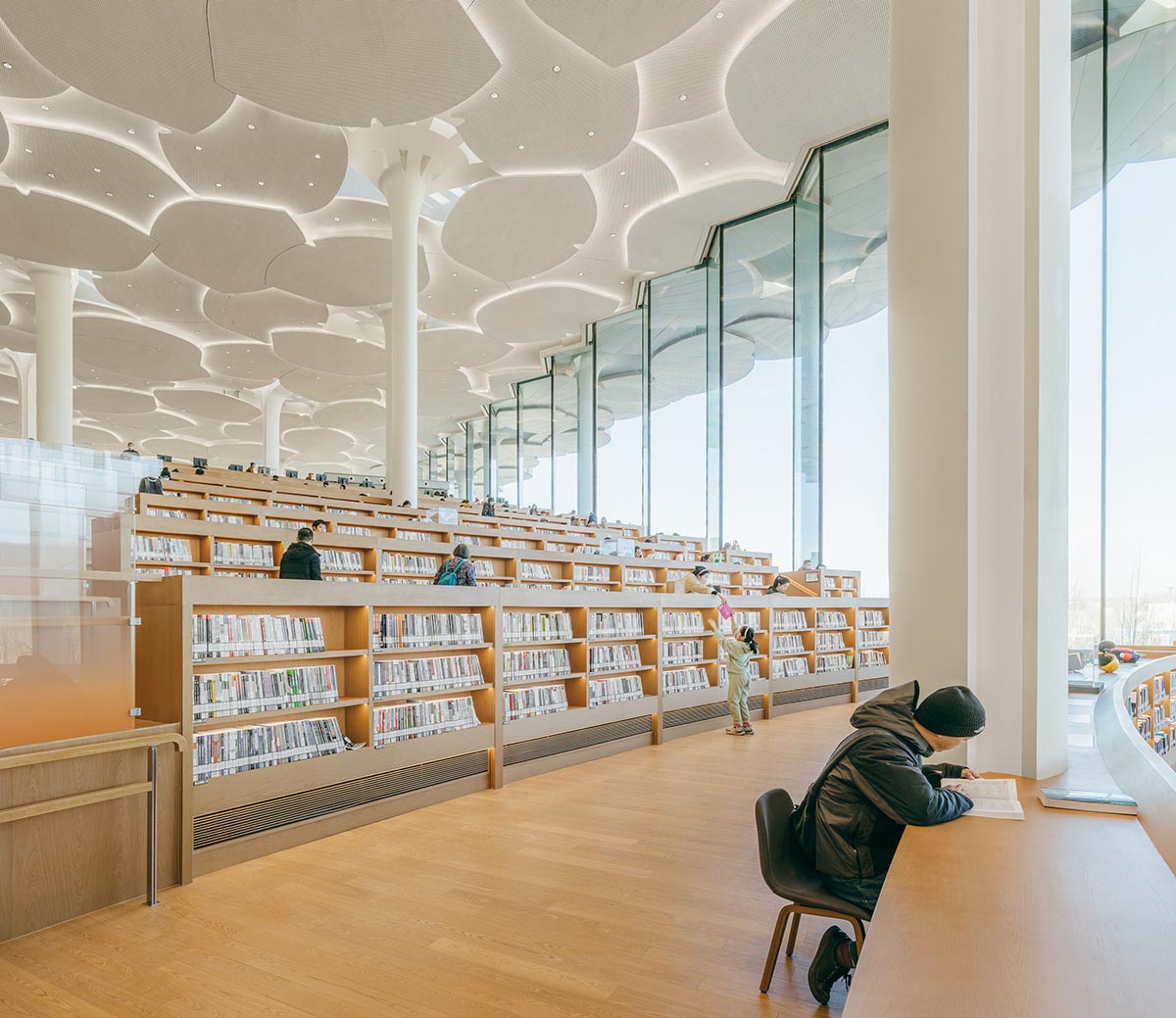
Another key element is the Valley, a meandering pathway is carved through the center and functions as the main circulation artery of the building.
"The Valley mirrors the course of the nearby Tonghui river, seamlessly continuing the experience of the landscape beyond and linking the north and south entrances to lead visitors to all other spaces inside," said Snøhetta.
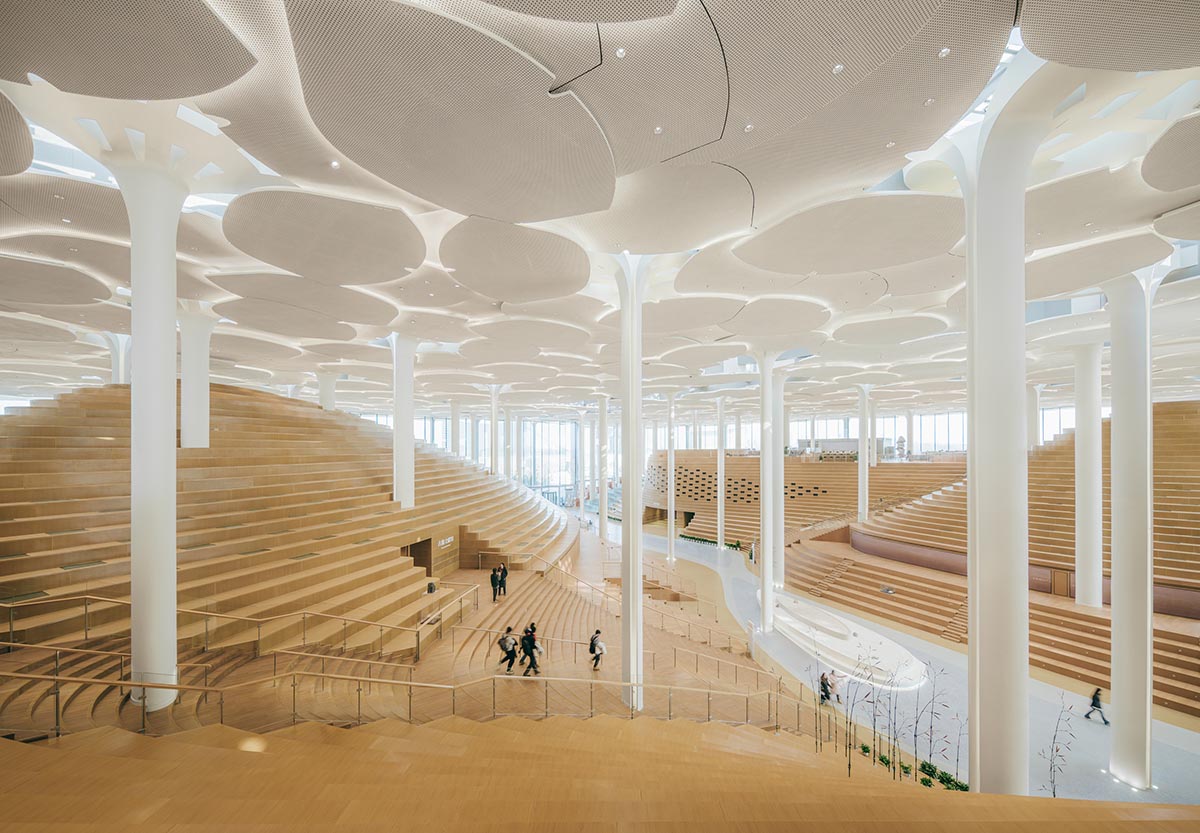
A series of terraced hills are rising from the Valley that are designed to create "a sculpted interior landform" that serves as the ground, seating, and shelving. This area is an informal zone with opportunities to relax, talk, or read quietly, all while staying connected to the larger space.
Acting like spacious hills, semi-private reading areas and conference rooms are embedded into the hills, while book stacks and table seating are set on long, flat areas atop.
"This central open area is fully accessible and incorporates one of the largest book Automated Storage and Retrieval Systems (ASRS) in the world," the firm added.
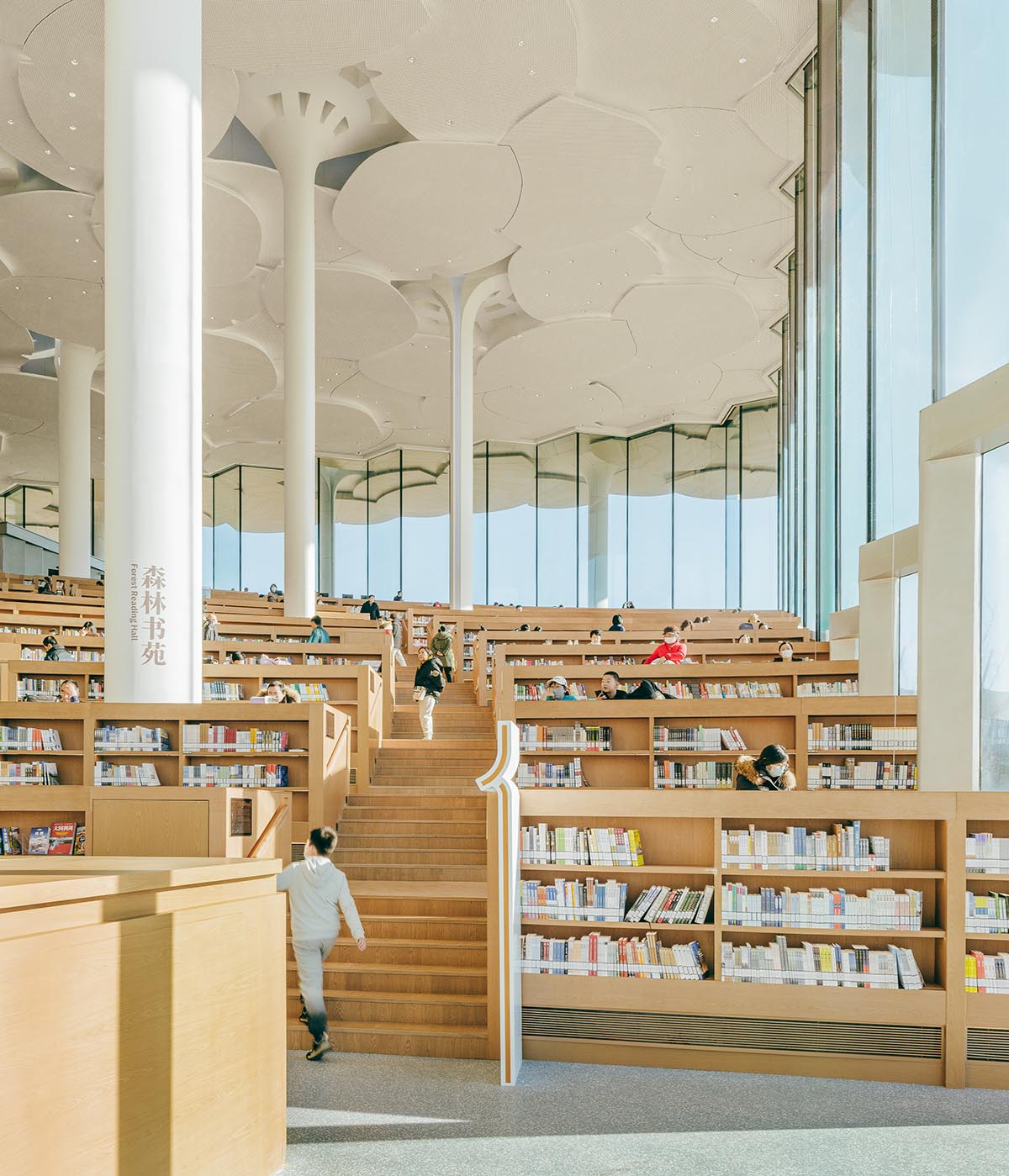
The interior height reaches at 22.3 meters, giving the feeling that visitors are waliking on a forest. The most striking elements inside the building are the huge columns that imitate the shape of trees.
The columns help to punctuate the large space to transition between the scale of the Valley and the books. Tall and slender columns "mushroom into flat panels shaped like ginkgo leaves—referencing a 290-million-year-old tree species native to China."
"The overlapping panels and the interstitial glass inserts create a canopy-like roof that floods the interiors with filtered daylight. Under this ginkgo canopy, one can reach the summit that overlooks the valley of books and the horizon of the vast landscape beyond," stated Snøhetta.
"This experience of oneness with the immediate surroundings and the imagined world offered in books allows the reader to forge memories that are unique to the place," the firm added.
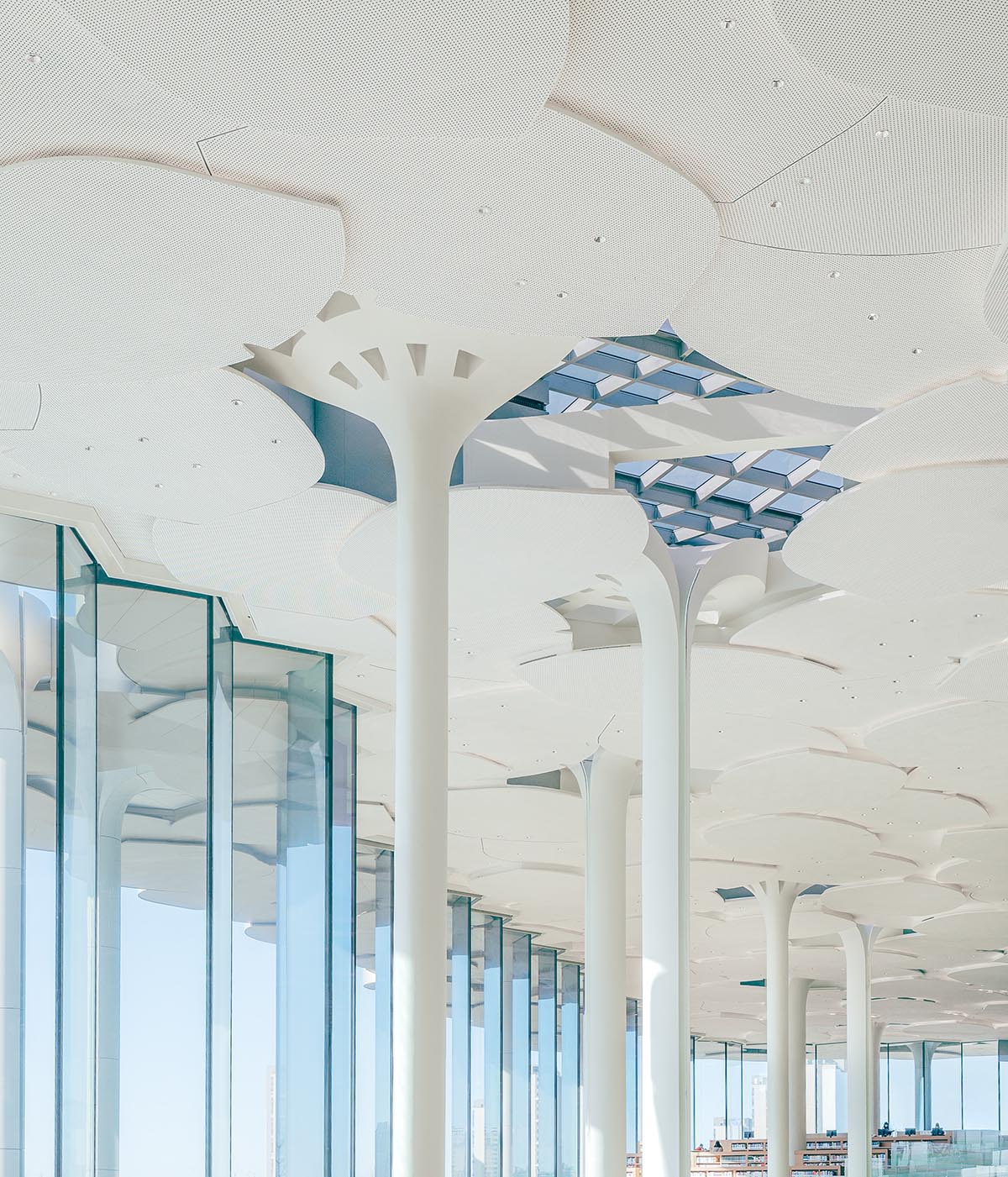
"The terraced landscape and tree-like columns invite visitors to lift their gaze and focus at a distance, taking in the bigger picture," said Robert Greenwood, Partner and Director of Asia Pacific at Snøhetta.
"This is a place where you can be sitting under a tree, reading your favorite book."
"The Beijing City Library has an intergenerational quality about it, where you would pass on your stories to children and introduce them to the titles you’ve loved," Greenwood added.
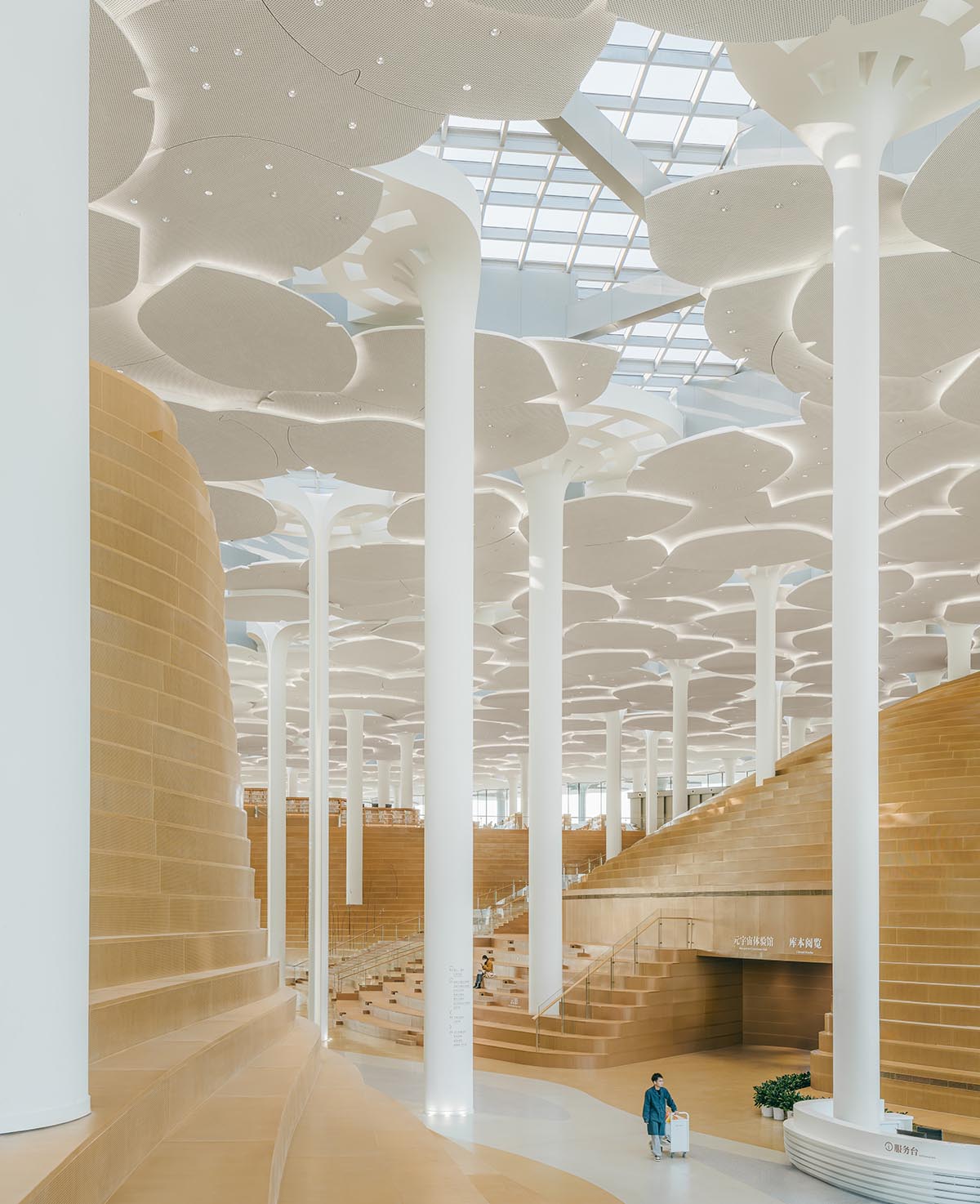
The firm also planted real ginkgo trees at the northern and southern edges of the building at the entry points, "the hills focus their views outwards to further enhance the connection with nature."
"The library celebrates Beijing’s natural and cultural heritage by integrating reading, performance, and landscape together," the firm explained.
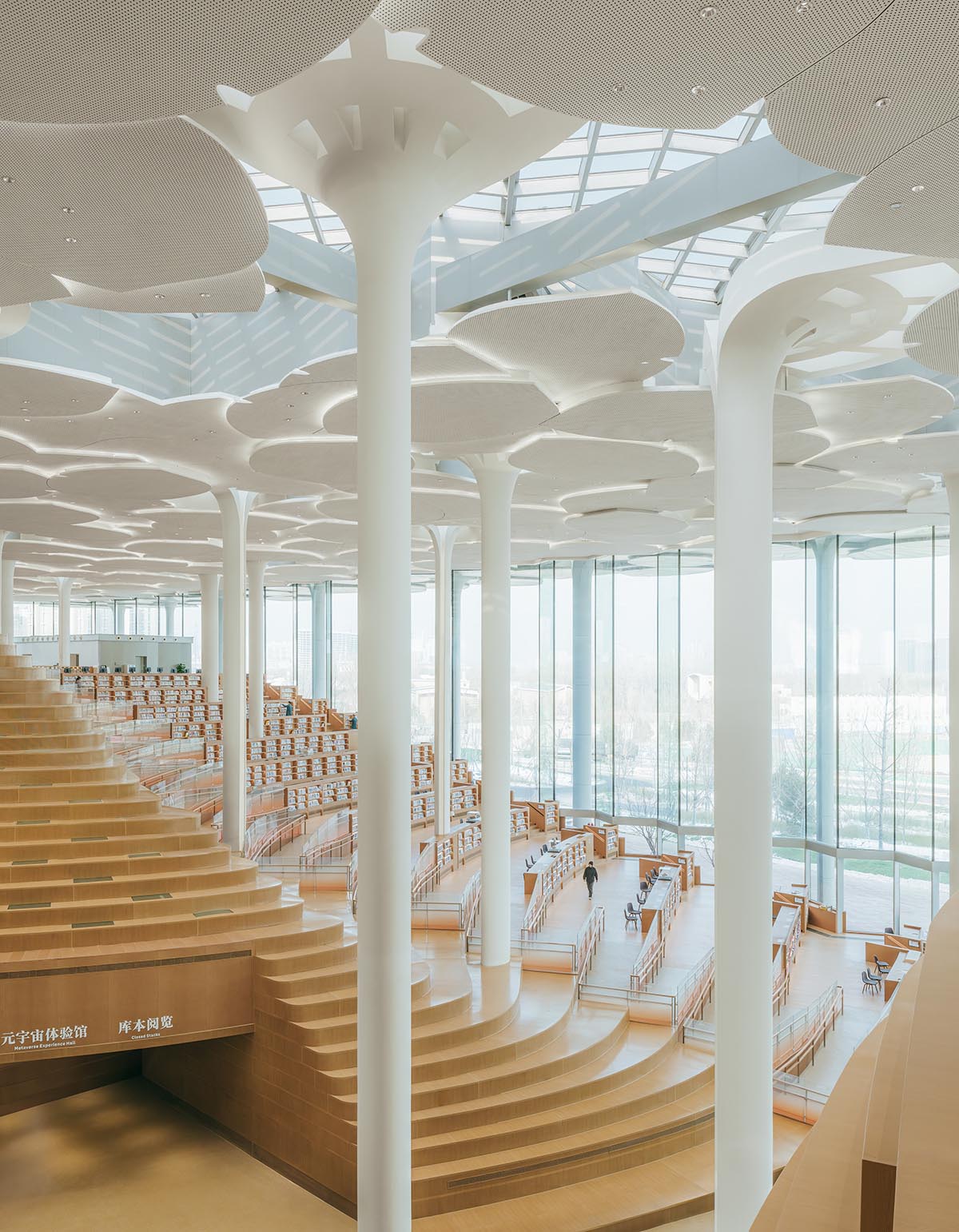
Setting the Green Standard for Libraries with Sustainable Technology
Snøhetta believes that the Beijing City Library reinterprets "how libraries today can address the pressing climate challenges while incorporating cutting-edge technology to improve visitor experience."
The roof of the building incorporates photovoltaic (BIPV) construction elements that replace the conventional roofing and facade materials. The roof is utilized for renewable energy production.
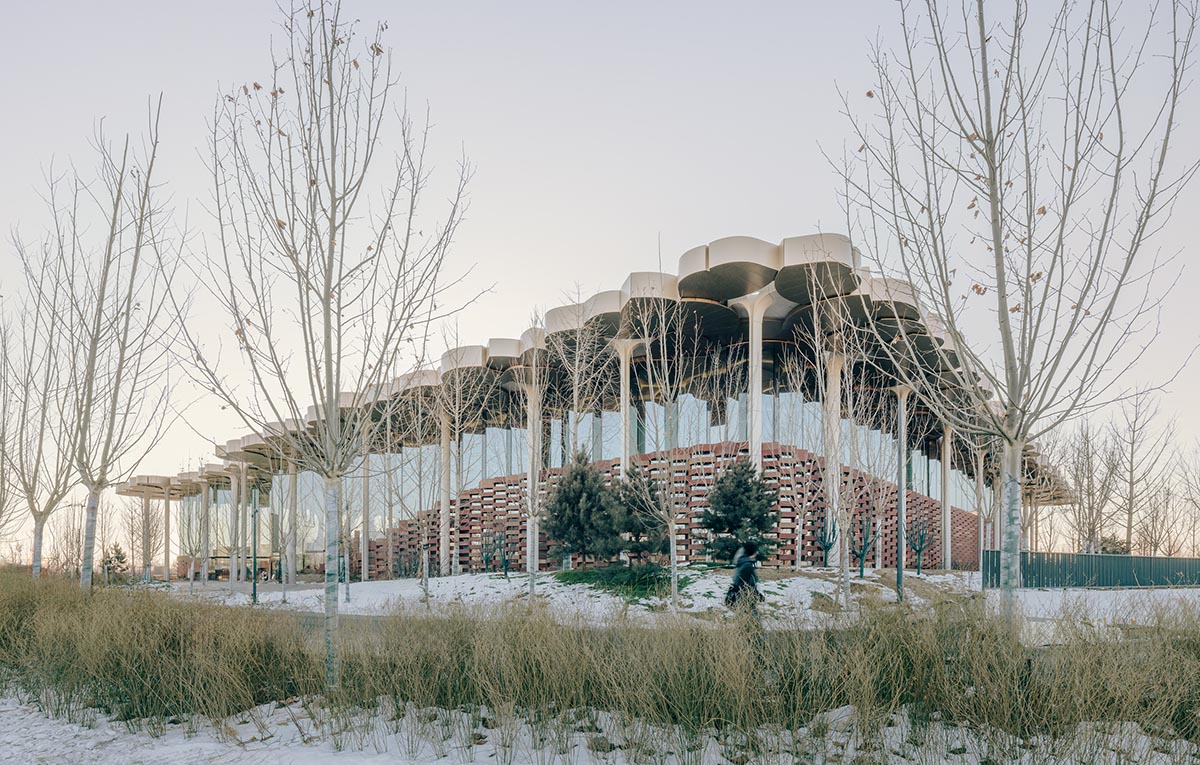
Taking sustainability at its core, the overall design has achieved China’s GBEL Three Star, the highest attainable sustainability standard in the country, by minimizing both embodied and operational carbon.
"The project is as much a steward of its environment as of the communities it serves," said Snøhetta.
Moreover, the modularity of columns and a rationalized structural grid help to reduce the manufacturing waste for the building, as the firm emphasized.
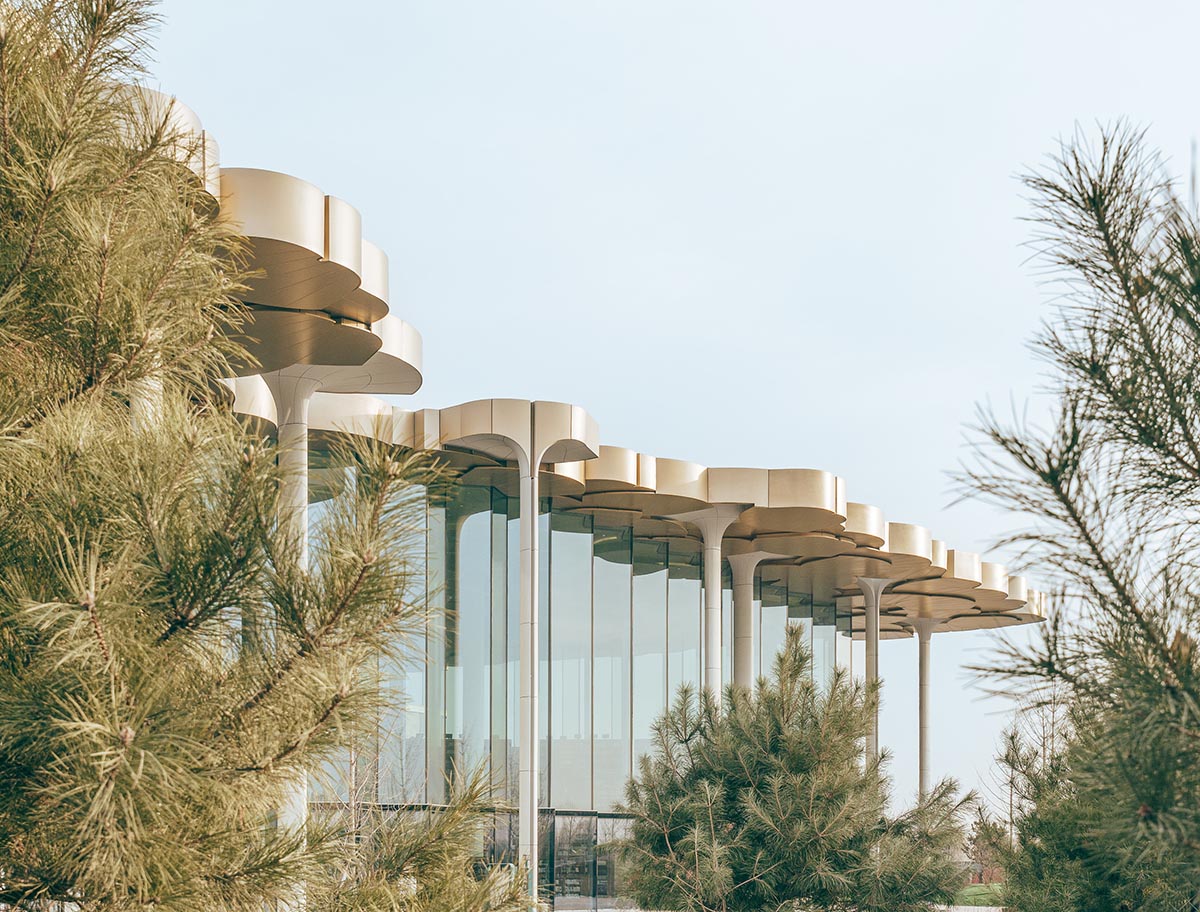
For the ginkgo tree columns, the studio rotates a single module type on a 9x9m grid throughout the building to give the appearance of variety while being efficient to fabricate and install.
Interior climate is controlled through an integrated technology hidden into the columns, equipped with lighting and acoustics.
Additionally, the columns collect rainwater from the roof to be reused for irrigation by channeling it to a green infrastructure system.
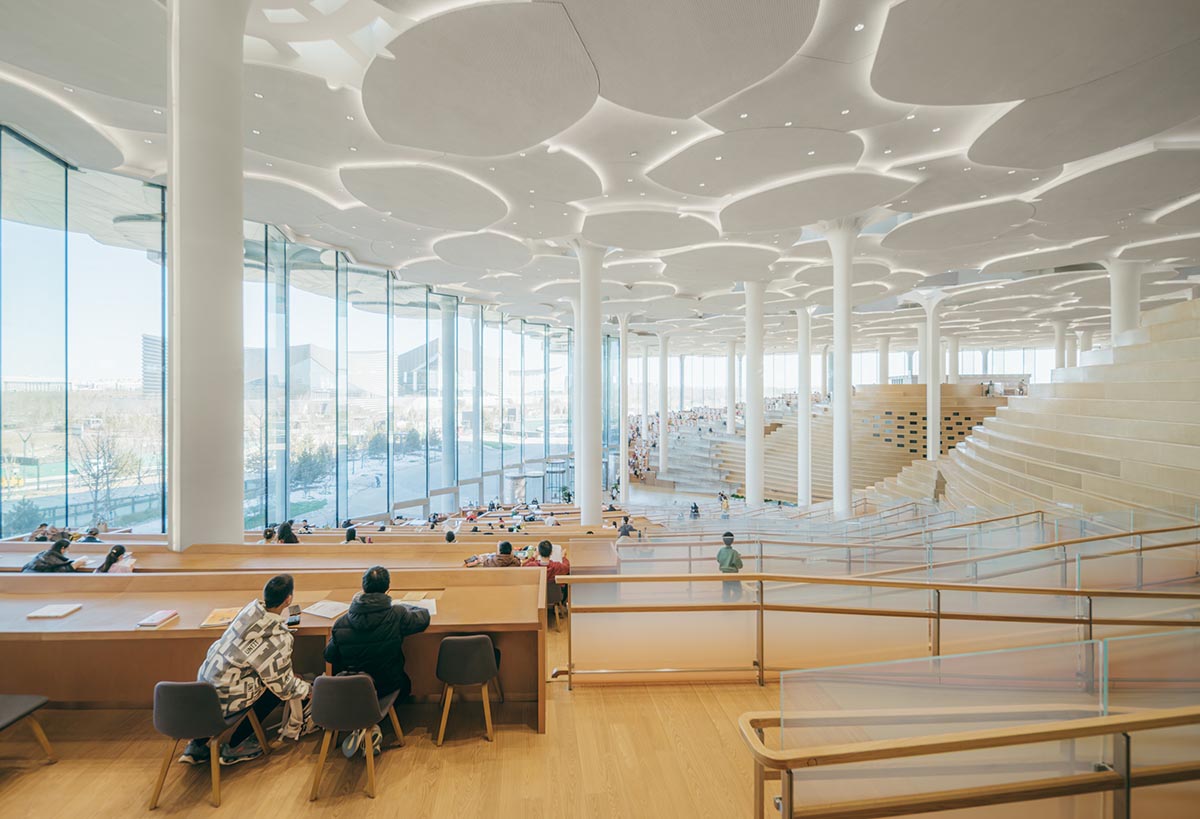
"Generous roof overhangs reduce solar gain on the glass facades—currently the largest load-bearing glass system in China—achieving an important design element without compromising on sustainability," said the firm.
Aiming to optimize the facade, the studio reduces the height of the glass on the east and west wells and uses insulated low-E glass.
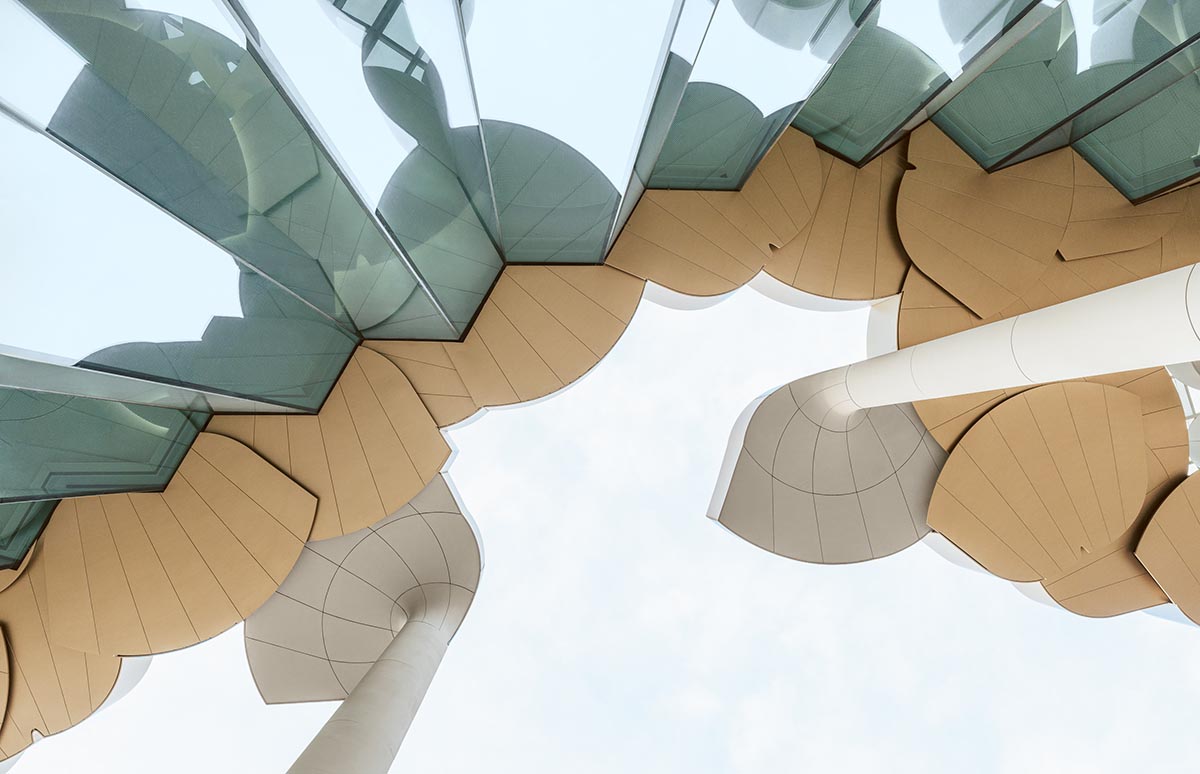
Snøhetta completed Vesterheim Commons, a place where Norwegian-American art flourish. The firm is designing a new opera house for Saudi Arabia referencing to traditional Najdi architecture.
Founded by Thorsen with architect Craig Dykers in 1989, Snøhetta designed its first library was the Bibliotheca Alexandrina in Egypt.
The Charlotte Mecklenburg Library, Far Rockaway Library, and Westchester Square Library are another library projects of the firm in the USA.
Project facts
Project name: Beijing City Library
Architects: Snøhetta
Timeline: 2018-2023
Client: Beijing Planning and Natural Resource Bureau
Location: Beijing City Library, Lv Xin Road Courtyard No.1; Building No.3; Tongzhou District, Beijing
Gross floor area: 75,000m2
Disciplines (by Snøhetta): Architecture, Interior Architecture
Certification: Green Building Evaluation Label (GBEL)—“China Three Star”
Collaborators
Executive architect: ECADI
Structural, geotechnical, and civil engineer: ECADI
Cost Consultant: ECADI
Building sustainability engineer: ECADI
Façade & BMU engineer: Eckersley O'Callaghan, Meinhardt
Lighting designer: ECADI
Main Contractor: China Railway Construction Engineering Group
All images © Yumeng Zhu.
> via Snøhetta
Beijing cultural buildings library public public buildings Snøhetta
